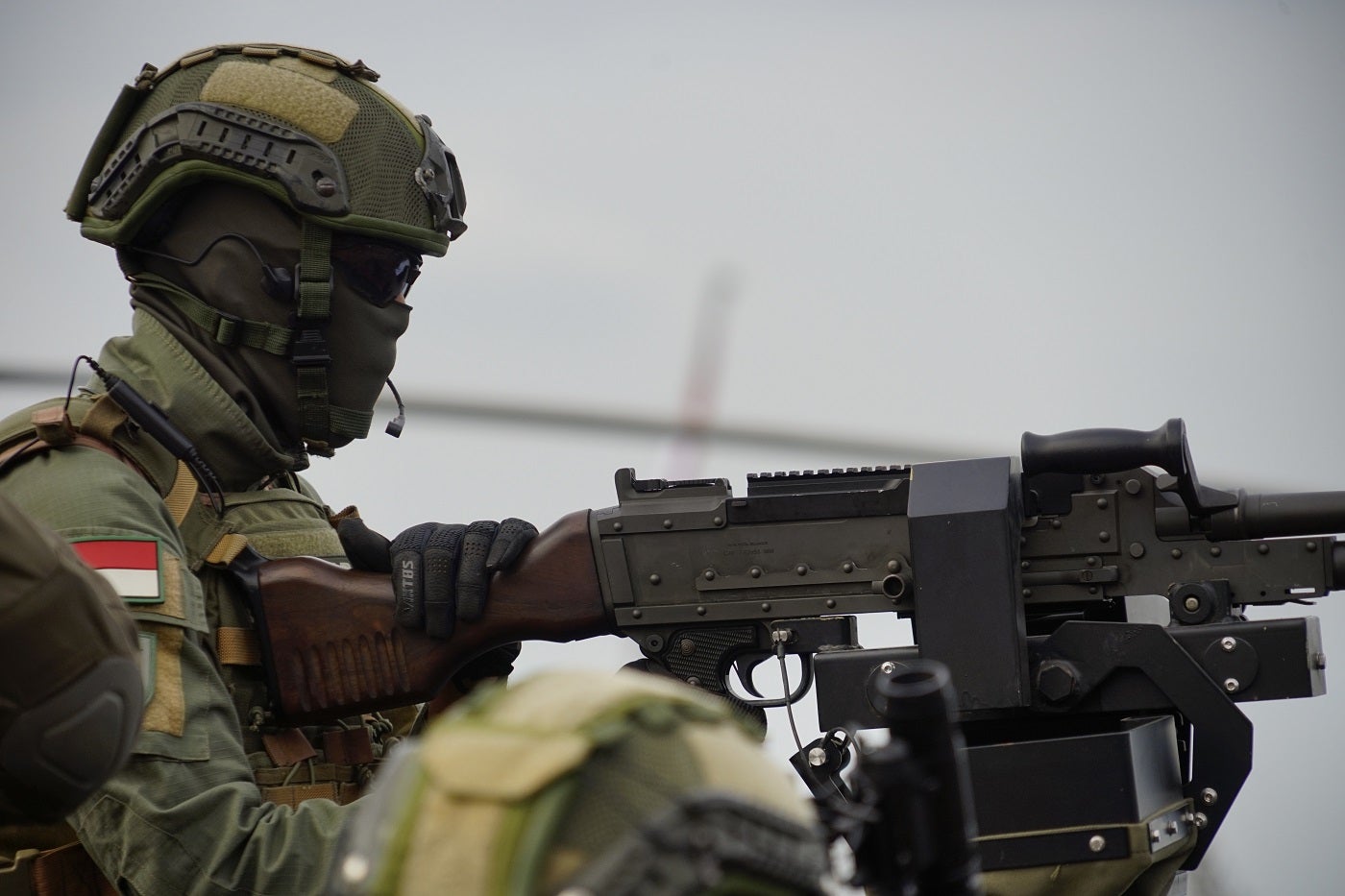
As Indonesia’s defence budget experiences steady expansion, GlobalData’s “Indonesia Defense Market 2023-2028” report delves into how the nation allocates funds across its army, naval, and air forces.
Indonesia’s commitment to national security and modernisation is unmistakable as the government bolsters its defence budget. With an eye on reinforcing its army, naval, and air capabilities, Indonesia’s defence expenditure has consistently grown, reflecting its proactive stance in safeguarding sovereignty, engaging in peacekeeping missions, and responding to natural disasters.
Defence budget breakdown
Indonesia’s defence budget for 2023 reached $8.8bn, with a compound annual growth rate (CAGR) of 1.9% during 2019–23, as reported by GlobalData’s “Indonesia Defense Market 2023-2028” report.
This upward trajectory is expected to persist, with an estimated CAGR of 2.2% over the forecast period, aiming for a defence budget of $9.7bn in 2028.
Army advancements and Air Force upgrades
The Indonesian army is pursuing a modernisation strategy, acquiring main battle tanks and self-propelled artillery systems.
The Indonesian Air Force is elevating its capabilities with plans to acquire 180 additional fighter aircraft under the minimum essential forces requirement. Modernisation efforts include procuring tactical airlifters, heavy-lift helicopters, and advanced reconnaissance aircraft.
The nation enhances its combat search and rescue capabilities, ensuring readiness for diverse contingencies.
Naval advancements
As indicated in GlobalData’s report, the Indonesian Navy invests in new frigates and corvettes to reinforce its maritime strength. Acquisition plans include potential replacements for the Ahmad Yani-class frigates to bolster the Navy’s regional capabilities.
Furthermore, Indonesia is expanding its submarine fleet in collaboration with South Korea and Daewoo Shipbuilding for three Type 209/1400 diesel-electric submarines. Indonesia’s maritime ambitions extend to purchasing BrahMos supersonic cruise missiles from India, solidifying defence cooperation between the two nations.
Peacekeeping and disaster relief
Indonesia’s commitment goes beyond military capabilities; it plays a role in international peacekeeping operations and is, in fact, the largest contributor of peacekeeping troops among United Nations member states.
Even amid the challenges posed by the Covid-19 pandemic, as mentioned in GlobalData’s report, Indonesia continues to provide support and stability to conflict-ridden regions. Additionally, the nation’s disaster relief capabilities are continually improving, with investments in transport aircraft, utility helicopters, search and rescue assets, and anti-submarine warfare helicopters.
Territorial disputes
Indonesia grapples with territorial disputes with neighbouring countries, notably China over the Natuna Islands and Malaysia over the Ambalat sea block. These conflicts underscore the nation’s commitment to strengthening maritime security. Monitoring, diplomatic efforts, and a military presence emphasise Indonesia’s determination to safeguard its sovereign rights.
Natural disaster preparedness
Indonesia faces numerous natural disasters in a geographically active region, including earthquakes, tsunamis, volcanic eruptions, and landslides.
The nation’s commitment to disaster response capabilities, exemplified in the Disaster Relief Rapid Reaction Force Task Unit, is pivotal. Investments in transport aircraft, utility helicopters, and communication systems ensure swift responses to natural calamities.
Budget allocation analysis
While Indonesia’s defence budget exhibits growth, its percentage of GDP dedicated to defence is projected to decrease slightly, emphasising the nation’s focus on economic development. The rising per capita defence expenditure reflects Indonesia’s commitment to bolstering its security forces.
Indonesia’s defence budget for 2023-2028 signifies an approach to safeguarding sovereignty, enhancing military capabilities, and contributing to global peacekeeping endeavours. The nation’s dedication to modernisation, disaster relief, and territorial integrity underscores its readiness to address security challenges in the years ahead.
Indonesia’s defence renaissance across the army, naval, and air domains is a testament to its commitment to a secure future.




